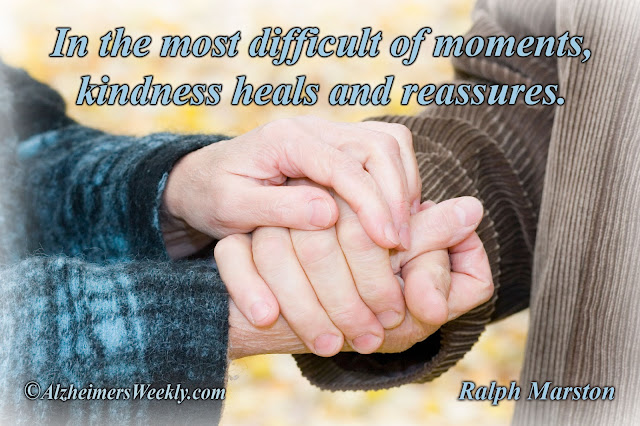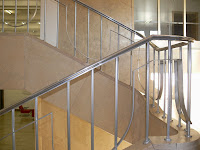
14 Ways to Prevent Falling at Home
EMERGENCIES due to falling happen 54% more often in dementia. As a rule, 1-in-3 adults over 65 fall each year. Most falls happen at home. Make a few simple changes and prevent falls.

EMERGENCIES due to falling happen 54% more often in dementia. As a rule, 1-in-3 adults over 65 fall each year. Most falls happen at home. Make a few simple changes and prevent falls.
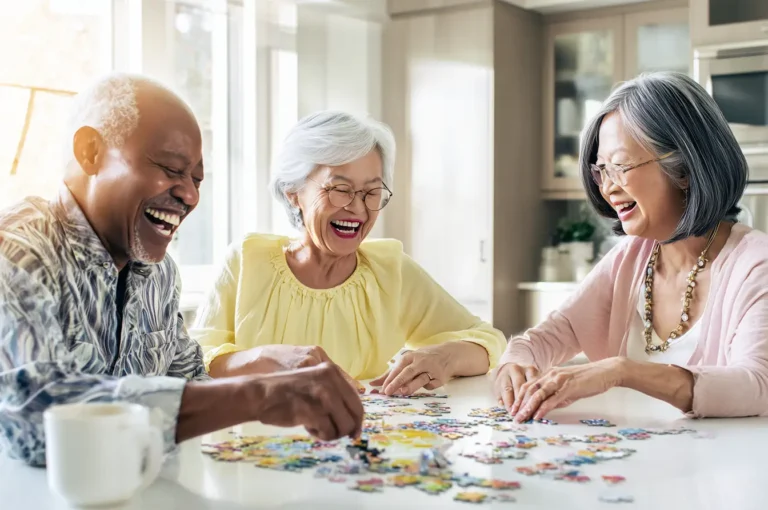
Creating peace, calm and a sense of control over their environment is the best gift to give a person living with Alzheimer’s. Learn all about In-Home Routines.
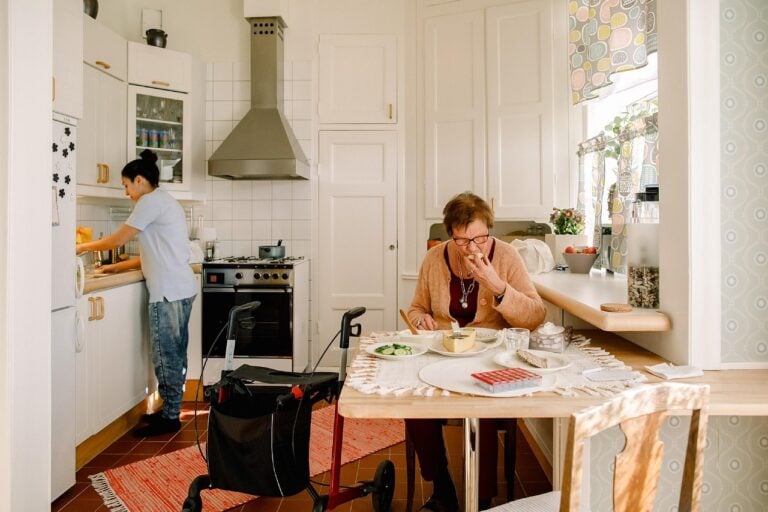
Knowing when to bring in help — and how to manage it well — can make all the difference in caring for a loved one with dementia. The right timing protects safety and dignity, while good management preserves peace of mind for everyone involved.

This isn’t any ordinary garden! It’s home to a very special group of people living well with Alzheimer’s.
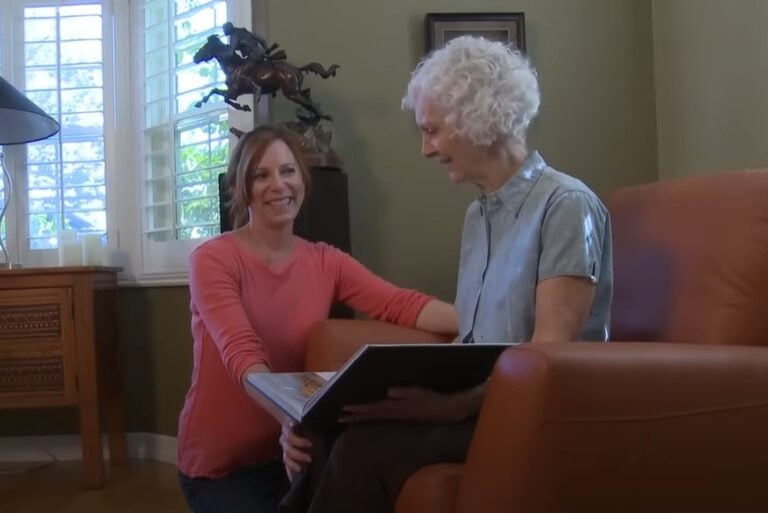
Refusal to bathe is common in people with dementia. Here are a dozen simple techniques to make bathing easier.

Alzheimer’s patients eating from red plates consumed 25 percent more food than those eating from white plates! Learn about the astonishing “Red Plates in Dementia Study.”
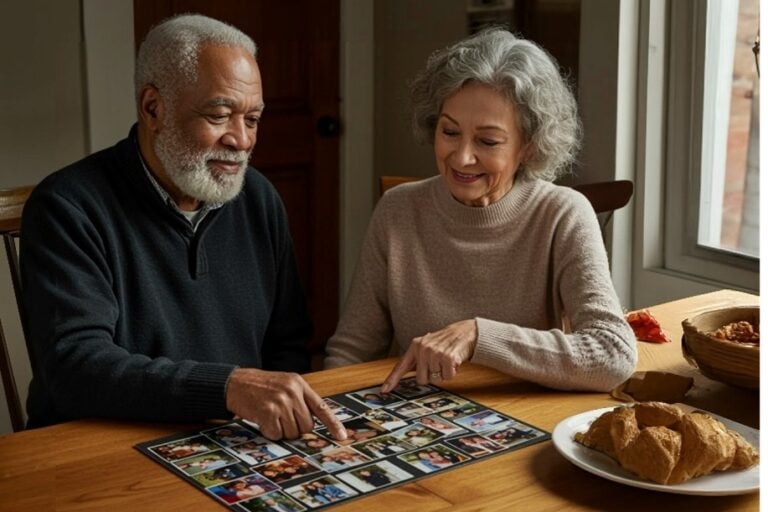
Make mealtime for loved ones with Alzheimer’s more meaningful. Foster social connections and bring people closer together with a custom, one-of-a-kind photo placemat. Make it a time to gather, share, and celebrate life.

People with dementia deserve dignity and have rights. Where do we draw the line between encouraging personal choices versus following what caregivers think is best? See Dr. Murray Raskin & Dr. Linda Teri offer experienced tips.

UPLIFTING AND IDEA-FILLED VIDEO: In picturesque Arnsberg, townsfolk are finding ways to make living with dementia as normal as possible.

Becoming more friendly to people with dementia is so crucial. See how “The Dementia Friends” initiative revolutionized an entire community to rally around its members with dementia.

Did you know? Intellectual abilities are increased in the brain by an average 300% in most people ages 60-80.

Dietary iron is an essential element in the brain. That’s why it is critical to understand how it affects Alzheimer’s. Researchers used advanced X-ray techniques to take a giant step forward in understanding iron chemistry in amyloid plaque, the main culprit behind Alzheimer’s. Learn more about their exciting new insights.
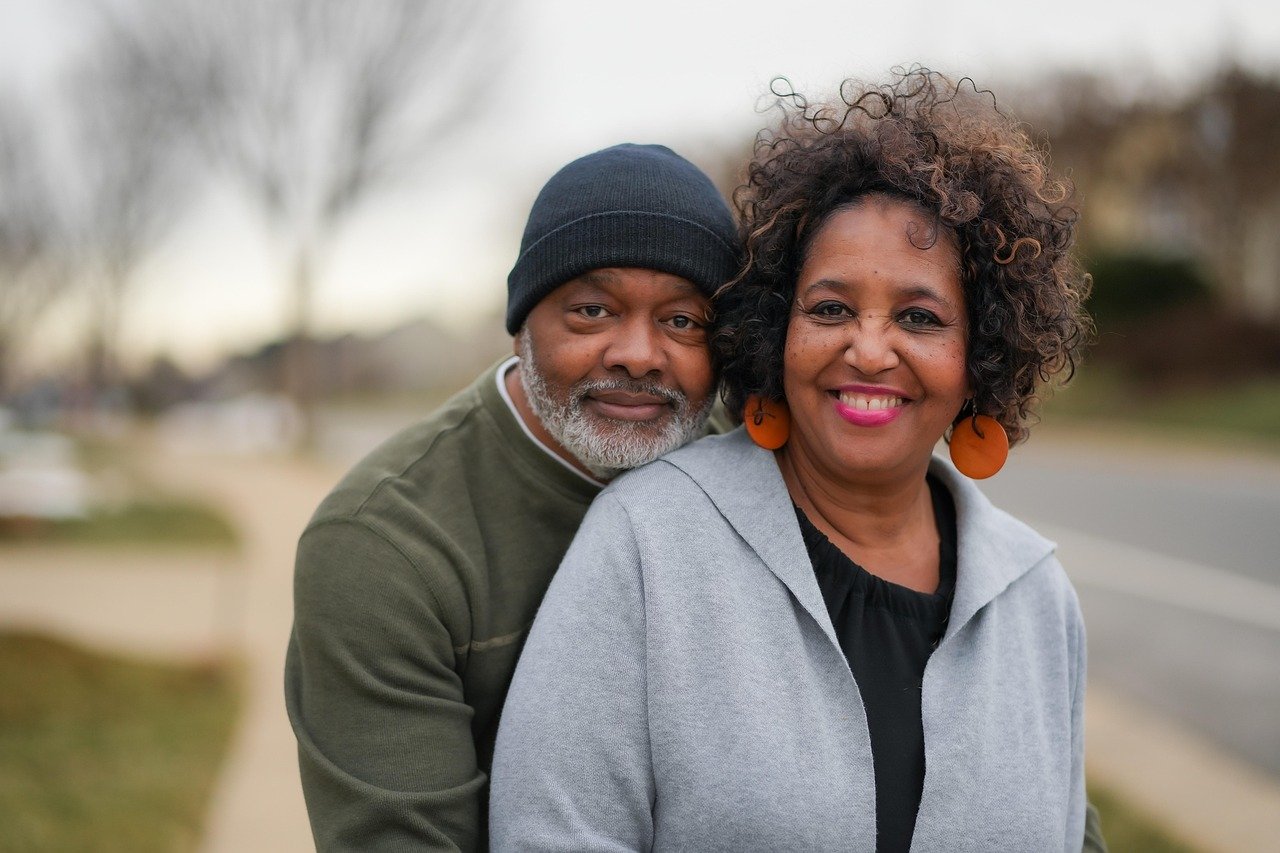
A deep promise to be there for an Alzheimer’s parent, this heartwarming song was written as a tribute to families facing dementia.

Dietary iron is an essential element in the brain. That’s why it is critical to understand how it affects Alzheimer’s. Researchers used advanced X-ray techniques to take a giant step forward in understanding iron chemistry in amyloid plaque, the main culprit behind Alzheimer’s. Learn more about their exciting new insights.

A deep promise to be there for an Alzheimer’s parent, this heartwarming song was written as a tribute to families facing dementia.

EMERGENCIES due to falling happen 54% more often in dementia. As a rule, 1-in-3 adults over 65 fall each year. Most falls happen at home. Make a few simple changes and prevent falls.
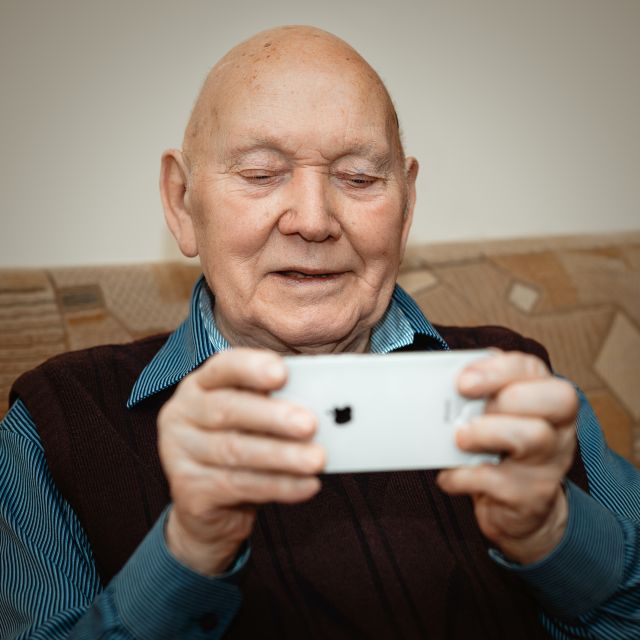
Researchers find education and intellectual stimulation appear to activate a genetic program in the brain that promotes resistance to cognitive decline. Find out more.
No spam, only news and updates.


